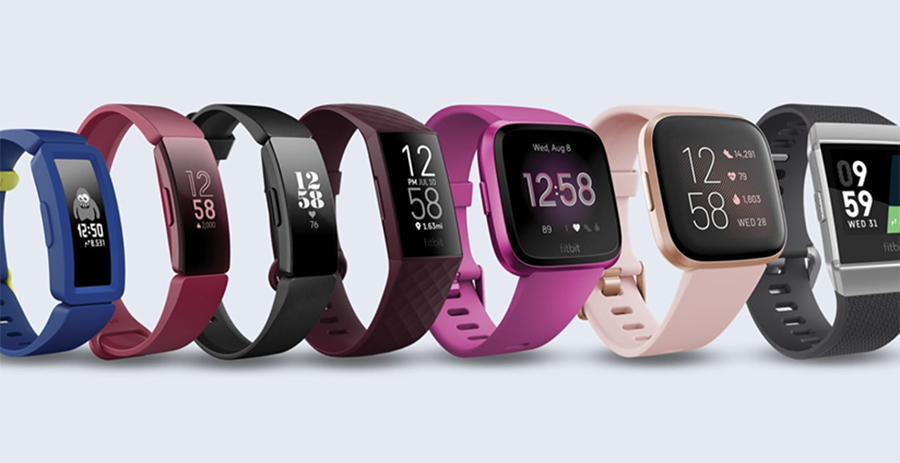Fitbit Inc., which has agreed to a merger with Google, reported sales fell 16.7 percent in the second quarter, to $261.3 million from $313.6 million a year ago.
The net loss came to $104.1 million, or 39 cents a share, against a net loss of $68.5 million, or 27 cents, a year ago. On an adjusted basis, the net loss was reduced to $31.5 million, or 26 cents per share, from $35.8 million, or 14 cents, a year earlier.
Cash flow from operations was $33 million and non-GAAP free cash flow of $28 million for its second quarter of 2020.
“We have been focused on helping our community stay physically active and mentally well during the pandemic. In this uncertain COVID-19 environment, we are seeing consumers turn to options that enable them to take charge of their health, such as Fitbit devices. In addition, many customers have taken advantage of Fitbit’s free premium trial offering and signed up for our subscription service,” said James Park, co-founder and CEO. “While COVID-19 has impacted our business and there continues to be uncertainty around consumer demand and the economy, we are encouraged by the 12 percent year-over-year POS sales growth we’ve seen at retail and through Fitbit.com.”
Second Quarter 2020 Financial Highlights
- Sold 2.5 million devices, down 30 percent year-over-year, driven by the introduction of one new product in the first half of 2020 versus four new products in the first half of 2019. Average selling price increased 16 percent year-over-year to $100 per device. The year-over-year price increase was driven primarily by the higher percentage of sales through the Fitbit.com channel, which grew 102 percent year-over-year to $66 million of sales.
- U.S. revenue represented 63 percent of total revenue or $165 million, down 9 percent year-over-year.
- International revenue represented 37 percent of total revenue and declined 27 percent to $97 million: EMEA revenue declined 17 percent to $72 million, APAC revenue declined 47 percent to $14 million and Americas excluding U.S. revenue declined 45 percent to $10 million, (all on a year-over-year basis).
- New devices introduced in the past 12 months, Fitbit Charge 4, Fitbit Versa 2, and Fitbit Aria Air represented 71 percent of revenue.
- GAAP gross margin was 35.6 percent and non-GAAP gross margin was 37.6 percent. GAAP gross margin increased 120 basis points and non-GAAP gross margin increased 200 basis points year-over-year driven by higher average selling price, the mix shift to Fitbit.com and growth of premium revenue, as well as $9 million decrease in excess and obsolete inventory write-downs.
- GAAP operating expenses represented 70.5 percent of revenue, increasing 3 percent year-over-year to $184 million driven by costs related to the pending acquisition by Google LLC; non-GAAP operating expenses represented 54.6 percent of revenue, decreasing 11 percent year-over-year to $143 million driven by lower marketing costs and lower customer service costs.
Second Quarter 2020 Operational Highlights
- Consumer demand for Fitbit devices was strong in the second quarter with POS up 12 percent in the second quarter. This was driven by 34 percent growth in smartwatch sales, led by sales of Versa 2.
- Revenue lagged POS sales driven by a large reduction in channel inventory. Global inventory in the channel declined by approximately one million units.
- Smartwatches represented 40 percent of revenue, trackers represented 56 percent of revenue and non-device software offerings were 4 percent of revenue. Tracker sales benefited from the introduction of Charge 4 in the first quarter of 2020. Non-device revenue grew 195 percent year-over-year driven by the growth of our consumer premium health offering.
- Following the introduction in the first quarter of 2020 of a 90-day free trial offering of Fitbit Premium to give users more tools to stay healthy during COVID-19, we began to see healthy levels of conversion from free to paid users. Fitbit ranked as a top 10 paid app within the Health & Fitness category on both Google Play and the iOS Store in the United States in the second quarter and now ranks as the number one paid app in the U.S. in Google Play and top five in the iOS store.
- Our Fitbit Health Solutions business was negatively impacted by COVID-19 and represented 7 percent of revenue, or $17 million.
- Fitbit introduced a COVID-19 resource tab in our free app that provides access to helpful information, tools, and resources, such as connecting with a doctor virtually.
- Fitbit announced a broader research effort in coordination with health industry leaders like Stanford Medicine and The Scripps Research Institute, to study how data from wearables can detect, track, and contain infectious diseases like COVID-19.
- Fitbit developed a high-quality, low-cost, easy to use the emergency ventilator, Fitbit Flow, which has obtained Emergency Use Authorization from the U.S. Food and Drug Administration, to help address urgent global needs during COVID-19.
COVID-19-Related Impact To Financials
- Fitbit’s business during the second quarter of 2020 was negatively impacted by the outbreak of COVID-19, which has caused disruptions in the development, manufacture, shipment, and sales of its products.
- Fitbit maintained the COVID-19 credit allowance of $6 million during the second quarter of 2020.
- The current circumstances are dynamic and unprecedented, and the impacts of COVID-19 on its business operations, including the duration and severity of the effect on overall consumer demand, cannot be predicted. However, Fitbit said it expects COVID-19 and associated mitigation efforts to continue to have a significant negative impact on its results in 2020, including its liquidity, although the nature and extent will depend on future developments that are evolving and highly uncertain.
Additional Highlights And Information
- Fitbit announced its entry into a Merger Agreement with Google on November 1, 2019. Upon close of the all-cash transaction, which is subject to customary closing conditions, Fitbit stockholders will receive $7.35 per share in cash, valuing the company at a fully diluted equity value of approximately $2.1 billion.
- Fitbit stockholders approved the transaction on January 3, 2020.
- Regulatory review of the transaction is ongoing. On August 4, 2020, the European Commission announced it has initiated a Phase II review of the transaction. The duration of a Phase II review cannot be foreseen with certainty. While Fitbit said it still expects Fitbit and Google to secure the necessary regulatory approvals and to close the transaction in 2020, the time frame may extend beyond that. Moreover, the extent to which COVID-19 may impact the timing of receipt of these approvals is uncertain and cannot be predicted. Prior to closing, Fitbit said it does not expect to provide additional updates on the regulatory process other than during the release of future earnings reports.
- Due to the pending acquisition by Google, Fitbit does not plan to host an earnings conference call nor provide next-quarter or full-year guidance.
Photo courtesy Fitbit










